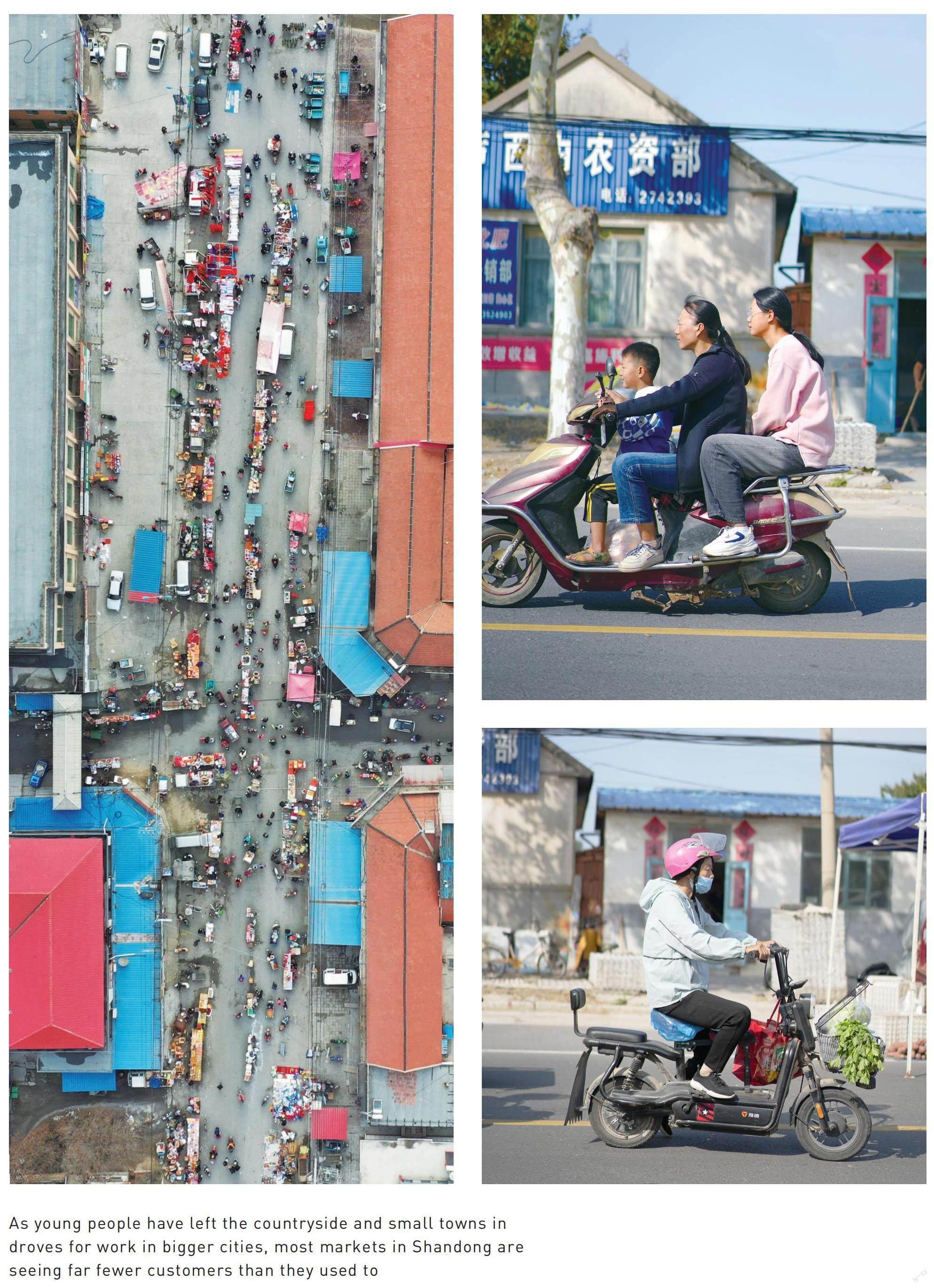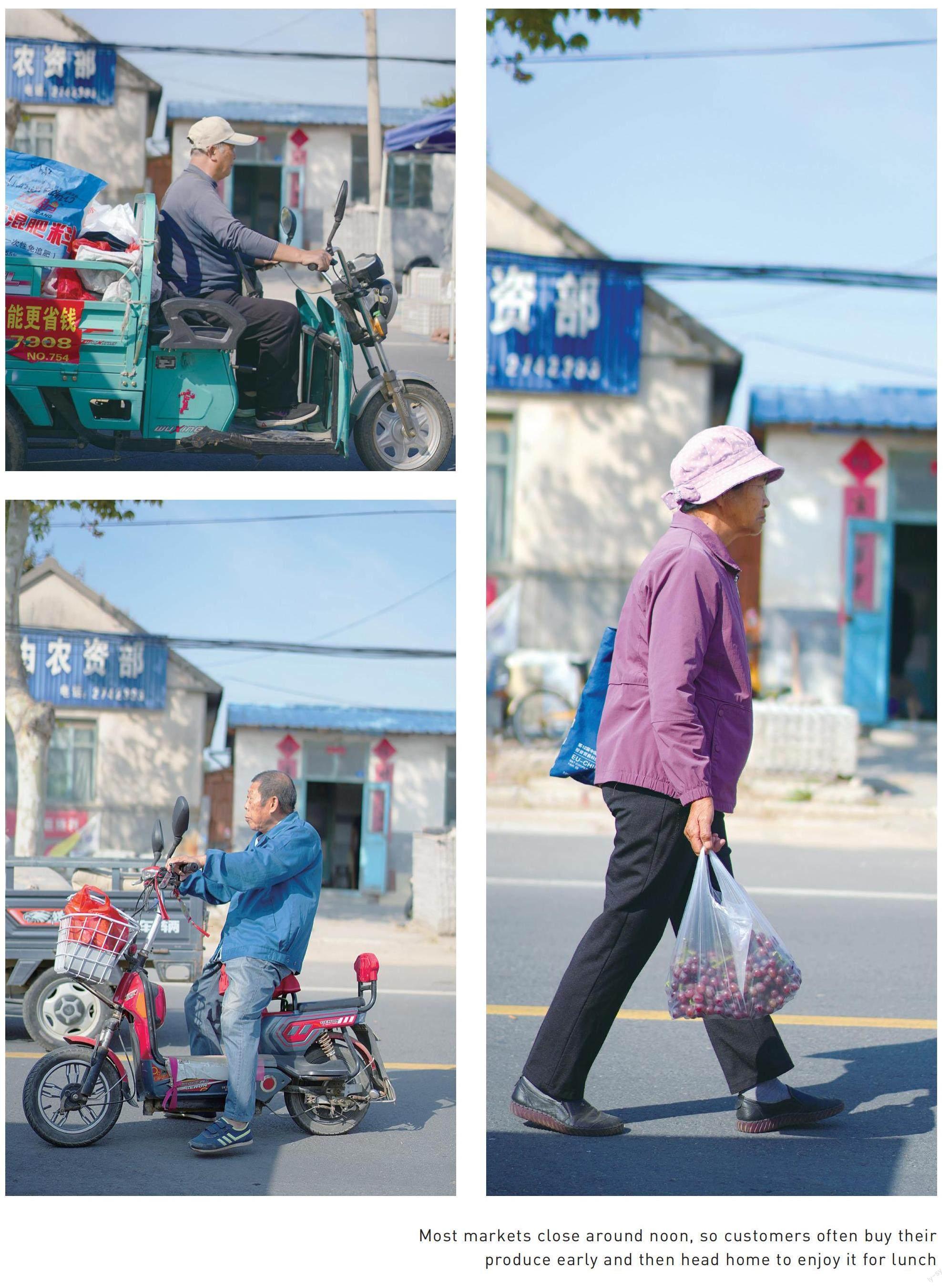Capturing Shandong’s evolving market culture on camera山东莱州大集:喧嚣远去,记忆归来
2023-12-14张惠丽钟鸣刘珏
张惠丽 钟鸣 刘珏



Marketplace ofMemories
Whenever I return to my hometown Laizhou, a small town in Shandong province, I always make a trip to the local market. Known among locals as thedaji(大集, big market), its not only a trading center but also a social hub. Every five days all year round, sellers gather at the busiest crossroads in town to set up their stalls. Locals are often as preoccupied with searching out familiar faces in the crowds as with perusing goods to buy. Theyll exchange greetings and catch up on the latest gossip around town.
When I was a child in the 1990s, my father would often run into his speech-impaired friend on market days. I watched as they exchanged signs and murmurings with glee in the busy crowd. But since both have passed away, and Ive moved to live in a different city, I became a mere visitor to this bustling marketplace.
Although markets are universal,dajiculture has been especially rich in Shandong since ancient times. Traversed by roads and the Grand Canal that connects Chinas North and South, Shandong has long been a hub of trade across China and abroad via its ports on the Bohai Sea. This prosperous commercial culture gave rise to countless markets across the province, with the oldest, Zhonggong Market in Jinan, now the provincial capital, dating back to over 2,000 years ago.
These markets are facing modern challenges. Many young residents like myself have grown up and moved away to attend universities, work, and settle down in bigger cities. The few of our generation and younger who stayed prefer supermarkets and online shopping to the market hubbub.
Various local culture and tourism authorities are trying to preserve Shandongs ancientdajiheritage. For instance, this past National Day holiday in October, the “Yellow River Market” in Yantai joined forces with the 2023 Yantai Marathon and featured folk performances, attracting tens of thousands of visitors. Thats all good for the local economy, but I still believe the essence of the market lies in its connection to the local people and the community, even as it inevitably evolves with the times.
